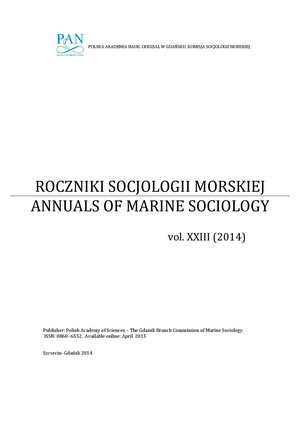Seaside Communities in Crisis: On the Construction of Collective Identity in a Japanese Whaling Town after the Moratorium
Seaside Communities in Crisis: On the Construction of Collective Identity in a Japanese Whaling Town after the Moratorium
Author(s): Frank SowaSubject(s): Social Sciences
Published by: Polska Akademia Nauk - Oddział w Gdańsku, Komisja Socjologii Morskiej
Keywords: seaside community; whaling, moratorium; collective identity; resilience
Summary/Abstract: After the whaling moratorium of the International Whaling Commission (IWC) came into force in 1986, Japanese whaling activities such as small−type coastal whaling, scientific whaling in the Antarctic, driving whaling or hand−harpooning continued on a reduced level. The zero−catch moratorium had an enormous impact on the whalers’, the whalers families and the traditional whaling towns. Being located in very remote rural areas, seaside communities found themselves involved in crisis concerning their economic, cultural, spiritual, social and moral development. Results of ethnographic fieldwork conducted in a contemporary whaling town in Japan show that whaling is still a part of the collective memory of the town: whalers and non−whalers construct their identities through the articulation of a strong attachment to the traditional whaling town and their ancestors. From the very beginning whaling was an economic activity, an industry, but it was so dominant (“whales are my life”) that all inhabitants were also involved in whaling related activities (sharing, arts and crafts). Today, whaling activities on the sea and on the land are decreasing. Additionally, whale and whaling symbolization is increasing. Inhabitants of the community experienced pressure from anti−whaling campaigns by global environmental groups and animal welfare organizations. Due to these experiences a new community identity emerged involving whaling as a reflected articulation, a marker of a cultural boundary in relation to Euro−Americans, but also in relation to urban Japanese and other rural communities which are not whaling, securing the future of the town as whaling town.
Journal: Roczniki Socjologii Morskiej
- Issue Year: 2014
- Issue No: XXIII
- Page Range: 21-35
- Page Count: 15
- Language: English

